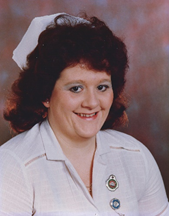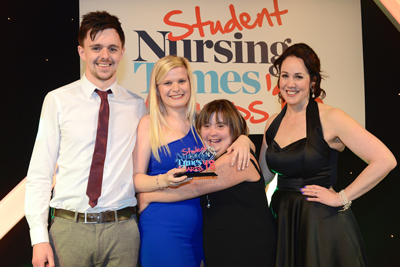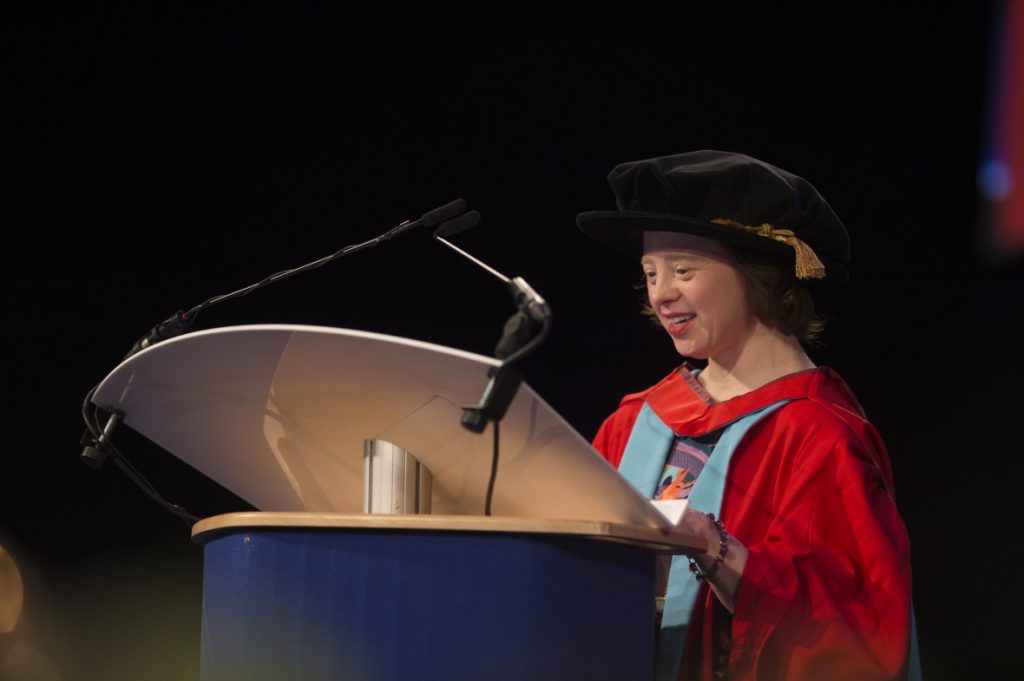March 29, 2021, by School of Medicine
30 at 30: Nursing and learning disabilities
 I got an email this week telling me I had worked for the University for 25 years (you get less for murder) which gave me pause for thought about this blog. I started my career in education in 1987 (I know you weren’t born!) and came into the school because I needed a bigger audience to take the Together we are better mantra to.
I got an email this week telling me I had worked for the University for 25 years (you get less for murder) which gave me pause for thought about this blog. I started my career in education in 1987 (I know you weren’t born!) and came into the school because I needed a bigger audience to take the Together we are better mantra to.
But you can (well I can) argue that the reach of that audience didn’t really increase until the advent of P2K which really saw the development of the corporate identity of the registered nurse and, most importantly in my eyes, the opportunity to ensure all nurses got to see their role in promoting good health for people who have a learning disability.

I started off thinking I would write about the amazing achievements learning disability student nurses from the University of Nottingham have made, and the School of Health Sciences’ commitment to promoting the voice of people with a learning disability.

And whilst I am very proud of what we have achieved over the last 30 years it’s more important that I reflect on the belief that ‘if you can get it right for someone with a learning disability, you can get it right for everybody’.
This is a text from one of our newly qualified nurses;
Hi Helen sorry to disturb you on your weekend I wanted to ask your advice about a patient, we’ve had a new leukaemia come in 30Yo with down syndrome – really sweet chap mother is present but we are struggling to carry out nursing interventions as he is immunocompromised and septic (BP 78/49) but won’t allow us to access his cannula or take bloods. From what I understand the learning disabilities team work mon-fri and I have left a referral message with them but for over the weekend is there any out of hours contact available ?? I’ve gone through the traffic lights sheet with mum but she isn’t sure what would help as he’s never really had cannulas or major hospital interventions before. Any advice would be appreciated!
Having the confidence to reach out and the willingness to make things better makes all those ‘lose the label’ sessions worth it!
And the end to the story?
Morning Helen – I hope you and the family are all okay! I just wanted to drop you a message, the patient we discussed a while back when I asked you for some advice was discharged yesterday in remission from his ALL – very emotional/happy moment and very much needed at this time. His mother was so grateful for our care and I wanted to thank you for your advice. Lots of love Xx
But the final word has to go to a brand new adult student in 2009 who wanted to tell her colleagues about her sister:
So here I am telling you about the ‘massive impact’ my sister has had on my life:
Just over 9 years ago my sister Clara was born. I still to this day remember the phone call I received from my dad when I was only 9 myself, telling me my little sister had been born. I was ecstatic!!! I had already waited 8 1/2 months for the news and then had to wait a further month and a half to meet her. I remember the very first time I met her and the first time I held her. I remember looking down at her little face and seeing my beautiful baby sister. Now I was only 9 and can’t remember exactly when I was told Clara had Down’s Syndrome, but when I first saw her, she was just my ginger little sister. I never ever remember looking at her and seeing her as a child with DS. I never will because the bond we have as sisters is something I only have with her! Now I have 2 other sisters and I know if they read this, they will understand what I mean because the love you have for your little sister is indescribable.
Being 9 years old, I didn’t have much of an idea of the world around me and I definitely didn’t understand half of it. But the day I met her something inside me changed. I became more aware of the world around me, I was starting to become more educated. Something that has always stuck with me is how, after she was born, I would notice other people with DS out in the street or in the supermarket or whilst shopping in town with my mum. This means that Clara has opened my eyes to the world. She has raised my awareness of a disability that, before her birth, I never knew anything about. (I did know of the disability as a few years prior, a teacher had told us all about her son she’d adopted and how he had Down’s Syndrome).
Just with Clara being in my life, I have learnt so much. I have learnt to notice other people and their differences but not treat them differently because of them. She has taught me how to respect other people and treat them as my equal. She has single-handedly raised my awareness of the disabled community. Through her I have learnt to be more patient and understanding and how a little love can go a long way. But most importantly, she has taught me how to be a big sister because without her I wouldn’t be one.
That’s my story about how much of an impact she’s had on my life and how I’m a better person for it. Because, I know growing up without her I wouldn’t have the same outlook and views on life I do today.
People with disabilities can teach us so much, you just have to be ready to learn.
The partnerships we have established, the space we give our students to learn about equality, diversity, inclusion and most importantly respect and our co-productive practice is what makes us and our students beacons of light in the nursing world.
By Helen Laverty, Professional Lead Learning Disability Nursing
No comments yet, fill out a comment to be the first

Leave a Reply